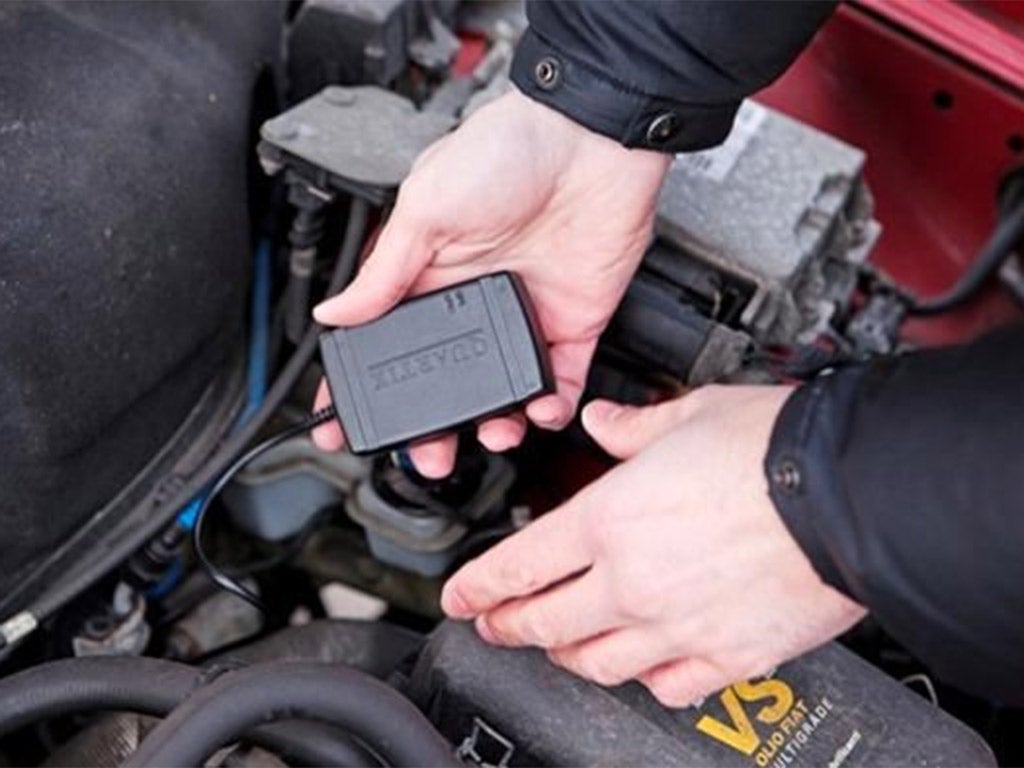'Black box' in car alerts insurers to crash and saves young driver’s life
Max Charles, 20, would not be alive today if not for the tracker installed in his car

Your support helps us to tell the story
From reproductive rights to climate change to Big Tech, The Independent is on the ground when the story is developing. Whether it's investigating the financials of Elon Musk's pro-Trump PAC or producing our latest documentary, 'The A Word', which shines a light on the American women fighting for reproductive rights, we know how important it is to parse out the facts from the messaging.
At such a critical moment in US history, we need reporters on the ground. Your donation allows us to keep sending journalists to speak to both sides of the story.
The Independent is trusted by Americans across the entire political spectrum. And unlike many other quality news outlets, we choose not to lock Americans out of our reporting and analysis with paywalls. We believe quality journalism should be available to everyone, paid for by those who can afford it.
Your support makes all the difference.“Black box” technology designed to be fitted inside vehicles to help young drivers pay lower car insurance has been credited for saving the life of a 20-year-old student, after it sent out an alert that he had been involved in a serious accident.
Max Charles was left in a potentially fatal semi-coma in his mangled car after it crashed into a tree in November 2013. He is thought to have fallen asleep at the wheel of his Vauxhall Corsa at around 4am and veered off a quiet Surrey road.
The time of the incident meant there were no witnesses and passing cars. Instead it was a small box installed by in his car by an insurance company that registered the collision and instructed the firm to contact emergency services.
Telematics, or black box insurance, is growing in popularity and involves the insurance company installing in-car tracking equipment to monitor driving behaviour such as speed, and what time of day the car is driven. The data is used to calculate insurance premiums – the better the driving, the lower the premium.
Mr Charles’s insurance company, entitled Drivelikeagirl, was established to help careful drivers get more for their money. But it also has a mechanism installed that can detect when the impact of a crash exceeds a certain threshold, at which point the emergency services are alerted.
The company claims that it has had more than 250 such incidents in the last 12 months. More than 300,000 cars are fitted with the devices, which remain especially favoured by young drivers – most of whom would pay far more under conventional insurance.
Using the technology, the police were able to track Mr Charles’ precise whereabouts. Last night Mr Charles told The Independent: “The officer that first found me said that had the black box not alerted them to my situation, I almost certainly wouldn’t have been found until later that morning. I definitely would not have been alive.”
Mr Charles spent two and a half weeks in hospital. Describing the technology as a “life saver”, he added: “Before the crash I had been deeply sceptical of such technology. I hated the way it watches how you drive, the speed, the times of your journeys and where you are. It all felt like you were being monitored constantly – and everyone, even my dad, had eyes on me. Now I cannot stress how that privacy is worth sacrificing.”
After the collision, Surrey Police tweeted a thank-you to his insurance company, saying: “Thanks to Drive Like a Girl, who rang us when they detected an impact. Without their help, we would not have found the car and driver so quickly.”
Join our commenting forum
Join thought-provoking conversations, follow other Independent readers and see their replies
Comments